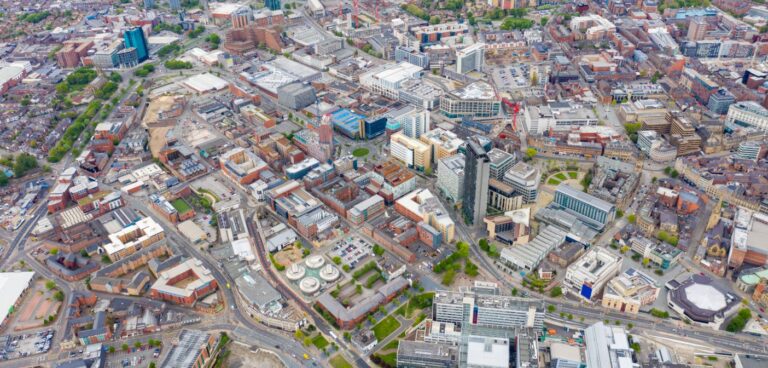A decision on Sheffield’s proposed clean air zone (CAZ) will be made next week at a special Co-operative Executive committee meeting held by the city council.
If the decision passes on Tuesday 26 October 2021, Sheffield City Council will create a Category C CAZ, accepting £24m of UK government funding to help local drivers upgrade to cleaner vehicles.
However, before the zone is introduced, a second citywide consultation will take place in November. This will focus on packages of support to help local businesses and taxi drivers reduce their emissions, including grants and loans.
The proposed CAZ means that buses, taxis, vans, coaches and lorries that do not meet Euro 6 diesel or Euro 4 petrol emissions standards will pay a daily charge to enter Sheffield city centre and inner ring road. Private cars and motorbikes will be exempt.
And in a change to previous proposals, private hire taxis and hackney carriages will no longer need to be electric or ultra-low emission.
Sheffield’s proposed charges are £10 a day for LGVs and taxis, and £50 a day for buses, coaches and HGVs.
Other UK cities that have introduced CAZs are starting to benefit from better air quality. In the three months after Birmingham introduced its zone, nitrogen dioxide (NO2) dropped by 20% on previous years. In Bath, which introduced a CAZ in March, NO2 had dropped by more than 12% compared with the same quarter in 2019.
In Sheffield, despite dropping during the pandemic, pollution has reportedly increased as traffic has returned to the roads.
A review of the plans announced in 2020, which used computer models to forecast how different options reduce pollution, has since shown that a Category C CAZ is still required to reduce pollution to legal levels.
Funding to be made available to help local taxi drivers and businesses upgrade to electric or ultra-low-emissions vehicles (ULEV) include: up to £10,000 grants for electric/ULEV wheelchair-accessible hackney carriages; up to £3,000 grants for local private hire taxi drivers to upgrade to electric/ULEVs; and up to £3,500 grants for local businesses to upgrade to electric/ultra-low emissions vans.
Read more: Greater Manchester CAZ financial support scheme for HGVs to launch in November
Cllr Douglas Johnson, executive member for climate change, environment and transport, said: “The CAZ means we support small businesses and taxi owners to upgrade their vehicles, to get older, dirty vehicles off the road and to clean up the city.
“There are exemptions for those who fall between the gaps. It forms part of the broader city centre strategy, including better public transport, better walking and cycling routes and better spaces for people to work, live and play.
“We believe this will end months of uncertainty for the taxi trade and give them a clear steer for the standards that will be expected for today’s taxi fleet.”
Exemptions from paying the daily charge are also included in the report. There are national exemptions for military, historic and agricultural vehicles.
Sheffield is also proposing some local exemptions, including: emergency service vehicles such as ambulances and fire engines; local charities that operate minibuses on a community transport permit; businesses that have ordered a compliant vehicle but have not received it due to waiting lists or supply chain delays.





